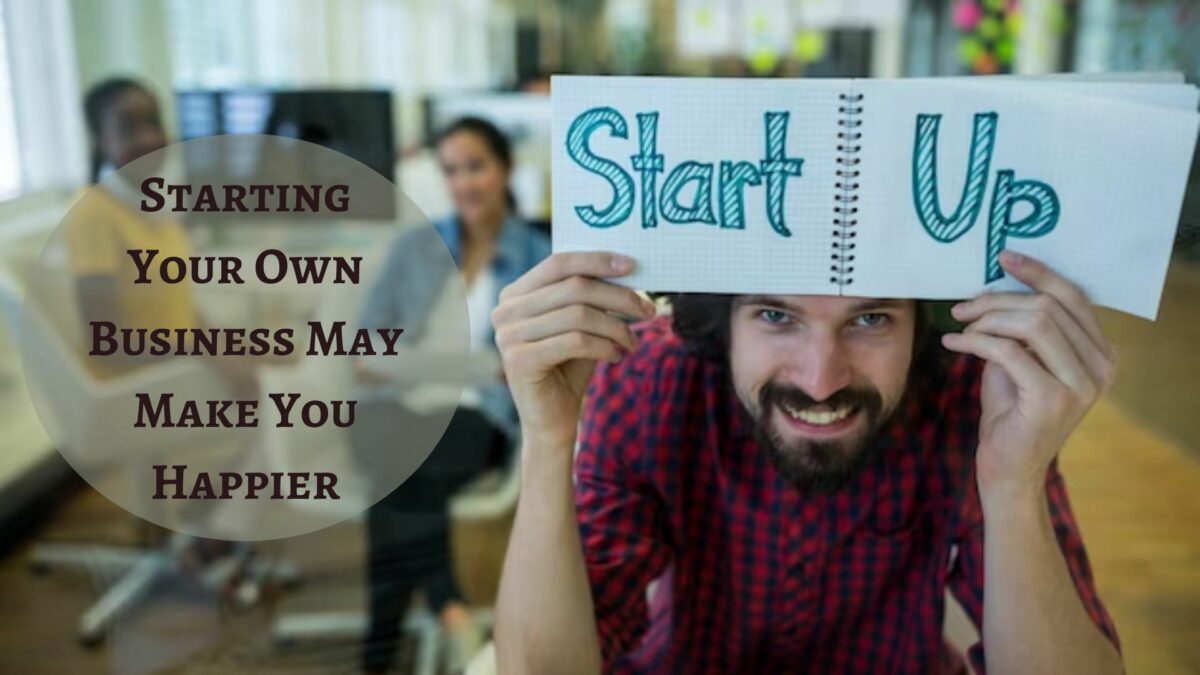“Entrepreneurship is the last refuge of the trouble-making individual.”
–Natalie Clifford Barney
When I started my business, I had a rather naïve idea of what it would be like. One of the frustrations I’d experienced in my professional life was what I perceived as the indirect relationship between my work and effort and the results that happened. The greatest idea possible could be lost in a military or a corporate bureaucracy and falter before it even ever had a chance to see the light of day.
I’m sure many of you can empathize, be it with bureaucracy, middle management, or simply the inability to see things through to a conclusion, point to it, and say “That’s mine, and I’m proud of it.”
I yearned for those moments and thought that there was a direct relationship between the amount of work I’d put in and the success I’d have in my company.
Boy, was I mistaken. I remember one proposal we’d put in which had an amazing team, the lowest price, the best proposal, and a potential customer just itching for a reason to get rid of their current provider due to horrendous and systemic underperformance. It was a big contract and potentially a game-changer for my company.
We didn’t win it. Why? We had mailed the proposal to the wrong address, and it arrived at the right building a couple of hours after the closing deadline.
When I was a kid, I watched those really poorly made kung fu movies with the mismatched voiceover dialogue. It seemed like every other movie had a scene where one fighter pulled out another fighter’s heart and showed it, still beating, to his vanquished opponent.
When we found out that the proposal had gone to the wrong address, I knew that feeling. For days, I wanted to do nothing but sulk.
Yet, in the end, it all worked out. The company grew, and I managed to sell.
I’m also a happier person now than I was, say, back when I was in business school. It could be because I have matured (James Altucher has a great article on the value of naming negative thoughts as “not useful”). It could be because I managed to have a successful exit from my startup.
However, recent research by the Wharton School of Business at the University of Pennsylvania’s Ethan Mollick and Matthew Bidwell point to the possibility that I have become happier simply for having founded a company. Their research shows that, at least among Wharton grads, those who found companies, aside from those in the biotech/healthcare/pharmaceuticals field, are happier than their employee counterparts.

When I first read the article, I had two reactions, which subsequent commentary helped address:
- Wharton grads are probably more successful than the average entrepreneur. Wharton is a great MBA program, and so the deck seems a little more stacked in the favor of someone from Wharton than just plucked out at random. However, 25% of the survey respondents had companies which had shut down without a successful exit event, and 40% were back at jobs; yet, those people were also happy.
- Entrepreneurs may self-select. If you ran a lemonade stand as a kid and went door to door selling tins of popcorn for your Boy Scout or Girl Scout troop, then you probably would have a higher likelihood of winding up an entrepreneur at some point, fulfilling your lifelong ambition, and, therefore, journeying down the path towards your own personal nirvana. The data, though, showed that the amount of time spent contemplating entrepreneurship before actually taking the plunge had no meaningful impact on satisfaction. In other words, whether or not you’ve always wanted to be an entrepreneur didn’t affect your subsequent happiness.
Unfortunately, I haven’t seen the full findings of the research and don’t have access to the data, so I can’t say what they conclude drives the happiness of the entrepreneurs aside from the act of entrepreneurship itself. What I can do is postulate on some of my own experiences and what drove my happiness.
- Control. I like to think of myself as more Type B than Type A; however, the reality is that I like to be in control of my own destiny. When I was in the Army, some of my friends and I called it a “chronocracy,” meaning that you got promoted when you’d been at a rank for a certain amount of time rather than by your ability. It was impossible to become a general in five years no matter how amazing you were. The same holds true for a large organization. Unless you already have a ton of experience and enter at an executive level, you’re not going to become the CEO in five years. Entrepreneurship offers that path.
It also offers control along other lines. I get to control when I work and the environment in which I work. When I’m not meeting clients, since I’m going to adjust to their schedules more than they are going to adjust to my schedule, I can work whenever and however I want. I don’t feel the need to punch a clock or work simply to be working. If I’m not being productive, I don’t work. I also can dictate where and when I go places. I work from home. However, if I wanted to take a “working vacation” somewhere, I could do that as well. Entrepreneurship has afforded me that freedom and control which I don’t think many other jobs would offer. - Impact. Once we got financially established and got traction, we worked on projects which had meaning. We worked on projects where, when we were done, our customers could really see a difference and were happy that we’d had the positive impact on them. Sometimes it was banal (“we’re helping people find the shoes they want on Zappos”), and sometimes it was truly meaningful (“we’re keeping the bad guys from getting to our soldiers”).
- Financial reward. It’s the elephant in the room of entrepreneurship – can I make it big and get rich? I basically turned a $400 investment into initially a job which paid me a salary (though, not for the first 18 months, see “If you’re starting a Small Business, Do Not Expect to Get Paid”) and then into a successful exit that enabled us to meet many of our financial goals.
Would I have been as happy had the path of life wound up in a different direction and I not succeeded as an entrepreneur? I don’t know. According to the data from Wharton, I’d still be happier, although, admittedly, I can’t help but think about Ronald Reagan’s biography and the story of his father who had a lifelong habit of starting and failing at companies. Perhaps Reagan’s father just never learned from his experience, never grew, and was, therefore, not happy.
If you either have the entrepreneurial itch or find that circumstances have forced you to think about starting your own business, it may be worth pursuing, since money can’t buy happiness. If you do, though, don’t forget my “side gig” rules of thumb.
Did you start up a business? Did it make you happier? Are you thinking about becoming an entrepreneur and think you’ll be happier if you do so? Tell us about it in the comments!
If you enjoyed this article, please share it with your friends using the social sharing buttons below.
Author Profile
- John Davis is a nationally recognized expert on credit reporting, credit scoring, and identity theft. He has written four books about his expertise in the field and has been featured extensively in numerous media outlets such as The Wall Street Journal, The Washington Post, CNN, CBS News, CNBC, Fox Business, and many more. With over 20 years of experience helping consumers understand their credit and identity protection rights, John is passionate about empowering people to take control of their finances. He works with financial institutions to develop consumer-friendly policies that promote financial literacy and responsible borrowing habits.
Latest entries
 Low Income GrantsSeptember 25, 2023How to Get a Free Government Phone: A Step-by-Step Guide
Low Income GrantsSeptember 25, 2023How to Get a Free Government Phone: A Step-by-Step Guide Low Income GrantsSeptember 25, 2023Dental Charities That Help With Dental Costs
Low Income GrantsSeptember 25, 2023Dental Charities That Help With Dental Costs Low Income GrantsSeptember 25, 2023Low-Cost Hearing Aids for Seniors: A Comprehensive Guide
Low Income GrantsSeptember 25, 2023Low-Cost Hearing Aids for Seniors: A Comprehensive Guide Low Income GrantsSeptember 25, 2023Second Chance Apartments that Accept Evictions: A Comprehensive Guide
Low Income GrantsSeptember 25, 2023Second Chance Apartments that Accept Evictions: A Comprehensive Guide

